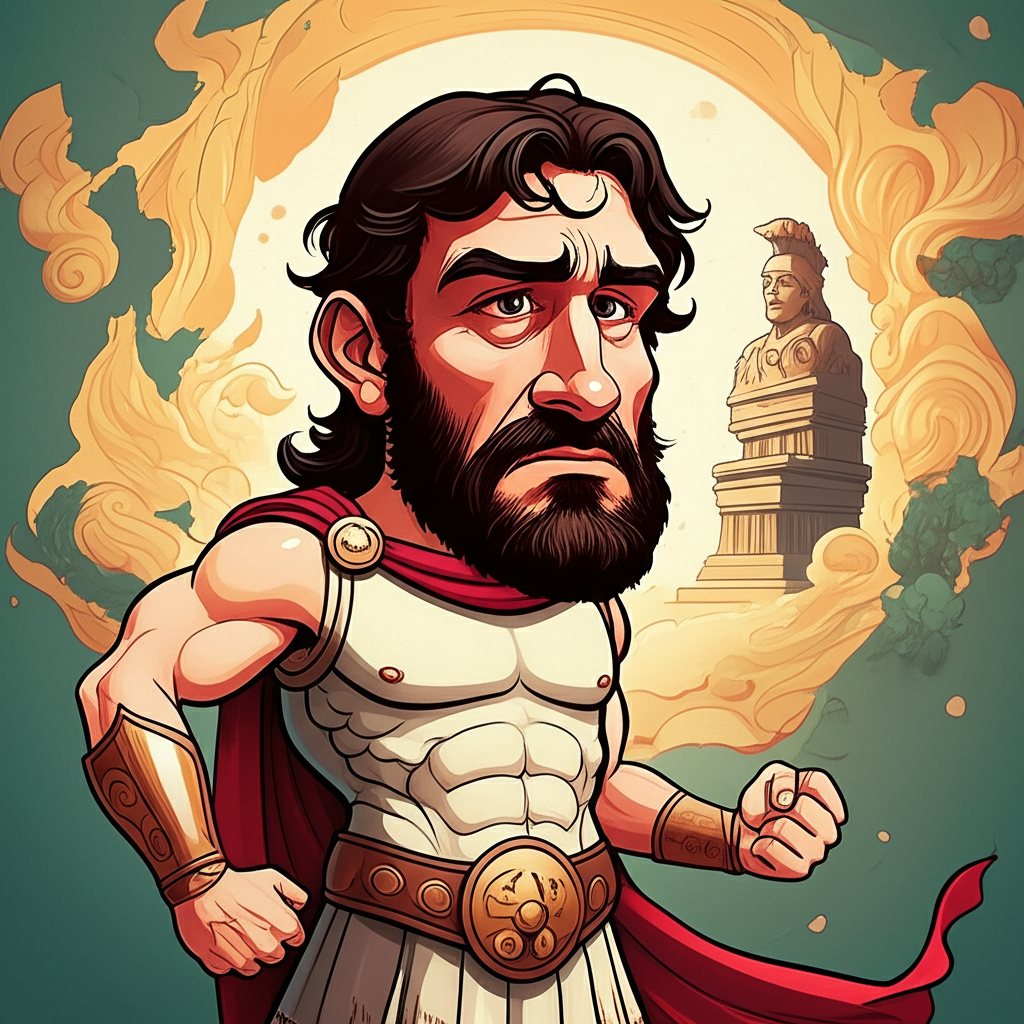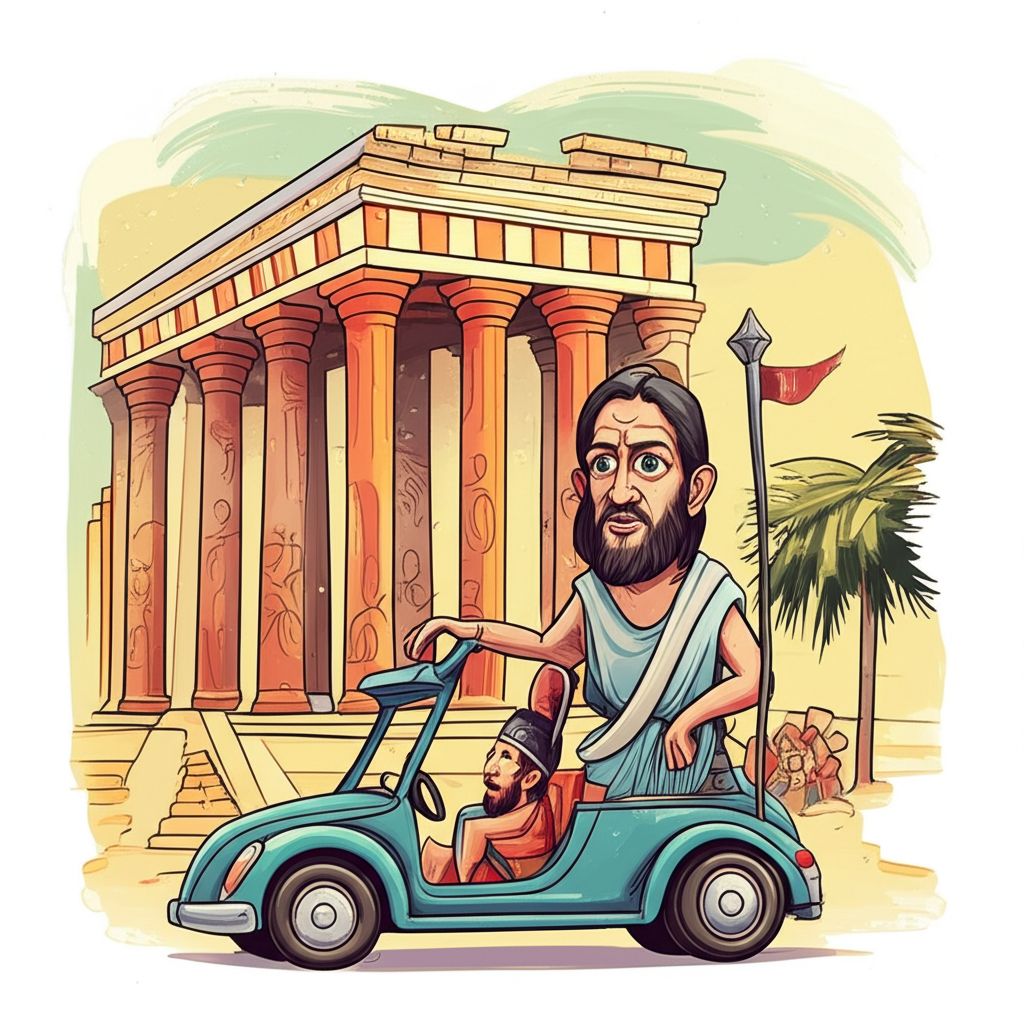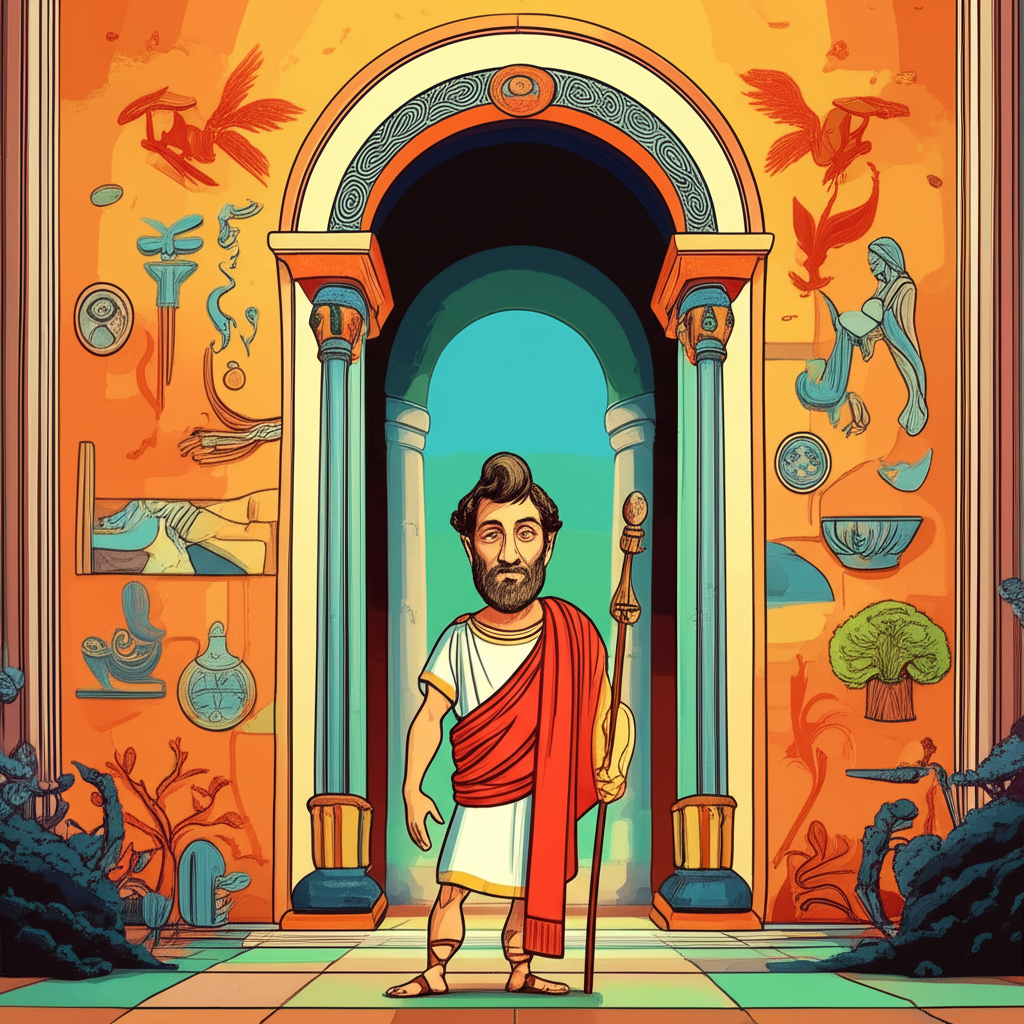
This article delves into a narrative from the rich tapestry of ancient Greek mythology, focusing on a fictional account of the legendary hero Achilles and a hypothetical "Trial of Elysium." It is crucial to understand from the outset that this story, like all myths presented here, is a traditional tale spun by people of antiquity. It is a product of their imagination, not a factual historical event or a doctrine to be believed, worshipped, or practiced. Its purpose is purely for cultural, historical, and educational understanding, offering a window into the worldview of its originators.
Origins and Cultural Background
The myth of Achilles, and indeed the broader concept of Elysium, emerges from the vibrant cultural landscape of ancient Greece, particularly during its Archaic and Classical periods (roughly 8th to 4th centuries BCE). This was an era of burgeoning city-states (poleis) like Athens, Sparta, and Corinth, each with its own distinct identity but sharing a common language, pantheon of gods, and a rich oral tradition of epic poetry. Homer’s Iliad and Odyssey stand as cornerstones of this tradition, shaping the Greek understanding of heroism, war, and the human condition.
In this society, life was often harsh, marked by conflict, natural phenomena, and the ever-present threat of disease. People viewed the world through a polytheistic lens, believing in a vast array of gods and goddesses—Olympians, Titans, and chthonic deities—who wielded immense power and often intervened in human affairs. Fate (Moira) was a powerful, unyielding force, often dictating the destiny of mortals and even gods. Honour (timê) and glory (kleos) were paramount, especially for aristocratic warriors, and achieving these through heroic deeds on the battlefield was considered the highest aspiration. The afterlife, primarily overseen by Hades, was complex, encompassing the bleak realm of Tartarus for the wicked, the indifferent fields of Asphodel for the ordinary dead, and the idyllic paradise of Elysium for the most virtuous and heroic. For the ancient Greeks, these myths were not just stories; they were explanations for the inexplicable, moral lessons, and reflections of their deepest fears, hopes, and societal values.
Character and Realm Description
At the heart of our narrative stands Achilles, the greatest warrior of the Achaeans during the Trojan War. Son of the nymph Thetis and King Peleus, Achilles was renowned for his unparalleled martial prowess, his swiftness, and his almost superhuman strength. Symbolically, he embodied the peak of ancient Greek military ideal: fierce, courageous, and utterly dominant in battle. Yet, he was also a figure of profound human complexity—prone to immense wrath (a central theme of the Iliad), pride, and a deep capacity for love and grief, particularly for his companion Patroclus. His famous vulnerability, the ‘Achilles’ heel,’ served as a potent symbol of even the mightiest hero’s inherent fragility and mortality, a reminder that no one, however great, can escape fate entirely. His choice of a short, glorious life over a long, obscure one defined his existence.
Elysium, also known as the Elysian Fields, represented the most desirable destination in the Greek Underworld. Unlike the dim, mournful Hades where most souls lingered as shades, Elysium was imagined as a realm of eternal spring, bathed in golden light, where the air was always mild and soft. It was a verdant paradise of fragrant meadows, gentle breezes, and the sweet sound of music. Reserved for heroes, the virtuous, and those beloved by the gods, Elysium was a reward for lives lived with exceptional honour and merit. It was a place of peace, rest, and joyful communion, a stark contrast to the often brutal realities of mortal life, serving as a powerful motivator for noble conduct and heroic sacrifice. It was not a physical location but a mythical concept, a promised haven for the worthy soul.
The Main Story: Achilles and the Trial of Elysium
The salt-laced wind of the Aegean was a distant memory. Achilles, the swift-footed, the god-like, now stood not on the blood-soaked plains of Troy but on the shores of a somber river, its waters glinting like polished obsidian. Charon, the ferryman, grunted as Achilles stepped onto the skiff, his spirit heavy with the echoes of his final, mortal breath. The journey across the Styx was silent, a stark contrast to the clamour of battle that had defined his life.
Upon disembarking, he expected the glorious gates of Elysium to open wide, a testament to his unmatched valour, his countless victories, and the legendary kleos he had earned. Had he not been the terror of Troy, the avenger of Patroclus, the very spear-tip of the Achaean might? Surely, such a hero was destined for eternal repose among the blessed.
Yet, as he approached a shimmering, ethereal gate, it remained firmly shut. Before it stood a figure, tall and austere, cloaked in robes the colour of twilight, his eyes holding the wisdom of forgotten ages. This was Rhadamanthus, one of the three judges of the Underworld, his presence emanating an aura of profound, impartial justice.
"Achilles, son of Peleus," Rhadamanthus’ voice resonated, not with anger, but with an unwavering certainty, "your deeds are etched into the annals of mortal memory. Your strength, unmatched. Your fury, legendary. But Elysium is not merely for the strong, nor for the wrathful. It is for those whose souls have found true balance, true peace. You bear the weight of much glory, but also the burden of much wrath, much pride, and many shadowed choices."
Achilles felt a familiar surge of indignation, a spark of the old warrior’s fire. "What trial remains for me? I faced Hector, I faced Troy, I faced death without fear! What more could the gods demand?"
Rhadamanthus simply raised a hand. "Your trial, great hero, is not of the spear, nor of the shield. It is a trial of the self, a journey inward. You shall walk the Path of Echoes, where your greatest triumphs and your deepest regrets shall manifest, not as foes to be vanquished, but as reflections to be understood."
And so, Achilles stepped through a shimmering veil, finding himself not in a battlefield, but in a series of vivid, ethereal landscapes. First, he stood on the plains of Troy, witnessing Patroclus fall, feeling again the searing agony of loss, the righteous fury that had driven him back into battle. But this time, he could not fight. He could only watch, feel, and confront the choices born of that grief – the desecration of Hector’s body, the prolonged siege, the countless lives lost due to his withdrawal from battle.
He saw Briseis, her face etched with sorrow as she was taken from him, and he understood, truly understood for the first time, the pain his pride had inflicted upon others. He relived moments of hubris, of refusing Agamemnon’s apologies, of valuing his own honour above the lives of his comrades. He saw the faces of those he had slain, not as enemies, but as men with their own families, their own dreams.
Days, or perhaps eons, passed in this subjective realm. He felt the phantom pains of wounds he had inflicted, tasted the bitter tears of those he had caused to weep. His legendary wrath, once a source of strength, now felt like a suffocating shroud. He yearned to fight, to lash out, but there was nothing to strike. His weapons, once extensions of his will, were useless here.
Slowly, agonizingly, something within Achilles began to shift. The rage receded, replaced by a profound, unfamiliar sense of introspection. He saw his life, not as a series of battles won, but as a complex tapestry woven with threads of heroism and folly, love and loss, pride and ultimately, a dawning understanding of his own mortality and impact. He confronted his own arrogance, his single-minded pursuit of glory, and the cost of his choices. He learned, finally, not to conquer, but to accept. Not to rage, but to forgive—himself and others.
When he emerged, the luminous gate to Elysium was indeed open. Rhadamanthus stood there, a faint, knowing smile on his lips. "You have faced your true self, Achilles. You have found peace, not through victory, but through understanding. Welcome, hero, to your true rest."
And as Achilles stepped into the golden light of Elysium, he carried not the weight of his armour, but the quiet wisdom of a soul finally at peace.
Symbolism and Meaning
To the ancient Greeks, the fictional "Trial of Elysium" for Achilles would have represented profound moral and philosophical insights. It would have underscored the belief that true heroism extends beyond physical prowess and military might. While Achilles was undoubtedly the greatest warrior, such a story would suggest that even the most formidable figures were not exempt from spiritual or moral reckoning. It symbolized the ancient Greek emphasis on character, self-awareness, and the idea that excessive pride (hubris) and uncontrolled wrath, even when leading to victory, carried a heavy spiritual cost.
This narrative would have served as a cautionary tale, implying that while glorious deeds earn fame in life, a peaceful afterlife requires introspection, humility, and a balance of virtues. It could also reflect the societal value placed on justice, even in the realm of the dead, suggesting that the gods or cosmic order ensured a final judgment based on the entirety of one’s being, not just their public achievements. Ultimately, it would have conveyed that true peace, even for a demigod, is achieved not through conquest, but through confronting and understanding one’s inner self.
Modern Perspective
Today, the myths surrounding Achilles continue to resonate deeply across various cultural platforms. In literature, modern retellings like Madeline Miller’s "The Song of Achilles" explore his humanity, relationships, and the emotional complexities behind his legendary wrath, often re-examining themes of love, grief, and identity. In cinema, films like "Troy" (2004) depict his martial prowess and tragic fate, albeit often with a modern psychological lens.
Video games frequently draw inspiration from Greek mythology, featuring Achilles as a powerful, iconic warrior, allowing players to engage with his story in an interactive format. Culturally, Achilles remains an archetype of the tragic hero—a figure of immense strength undone by a single flaw or an inescapable fate. Scholars of mythology and classical studies analyze his story for insights into ancient Greek societal values, literary conventions, and the enduring human fascination with heroism, mortality, and the quest for meaning. The concept of an "Achilles’ heel" has become a universal idiom for a fundamental weakness, demonstrating the myth’s lasting impact on language and thought.
Conclusion
The story of Achilles and the Trial of Elysium, like countless other tales from ancient Greek mythology, stands as a testament to the enduring power of human imagination and the rich tradition of storytelling. These narratives, while captivating and complex, are products of specific cultural and historical contexts, reflecting the worldview and values of the people who created them. It is important to reiterate that these myths are not presented as truth or divine revelation.
As Muslims, we recognize that Allah (SWT) alone is the true Creator and Sustainer of the universe, and the concept of an afterlife, as well as the nature of existence, rests solely within His divine knowledge and decree. These mythological accounts offer valuable insights into the cultural heritage of ancient civilizations and their attempts to understand the world, morality, and the human condition. They remind us of the universal human impulse to create stories, to seek meaning, and to pass down wisdom, even if through the lens of fantasy and ancient belief systems.




